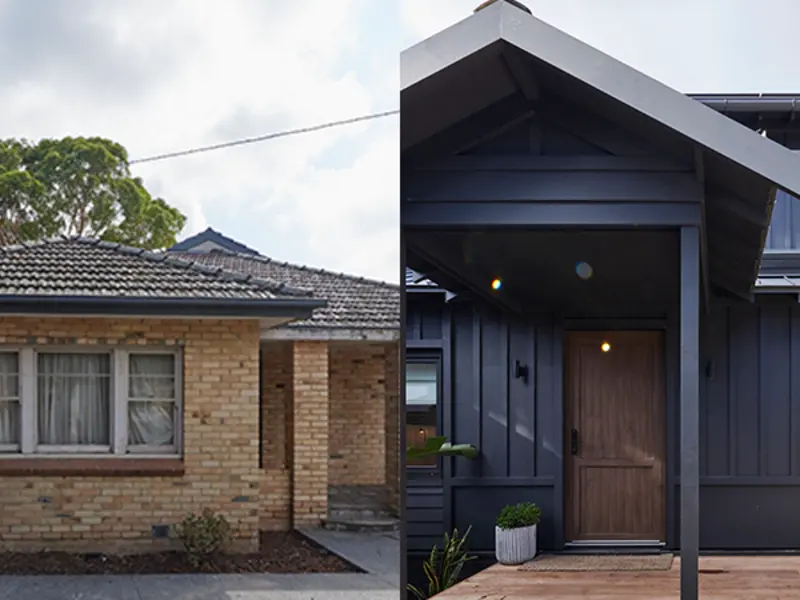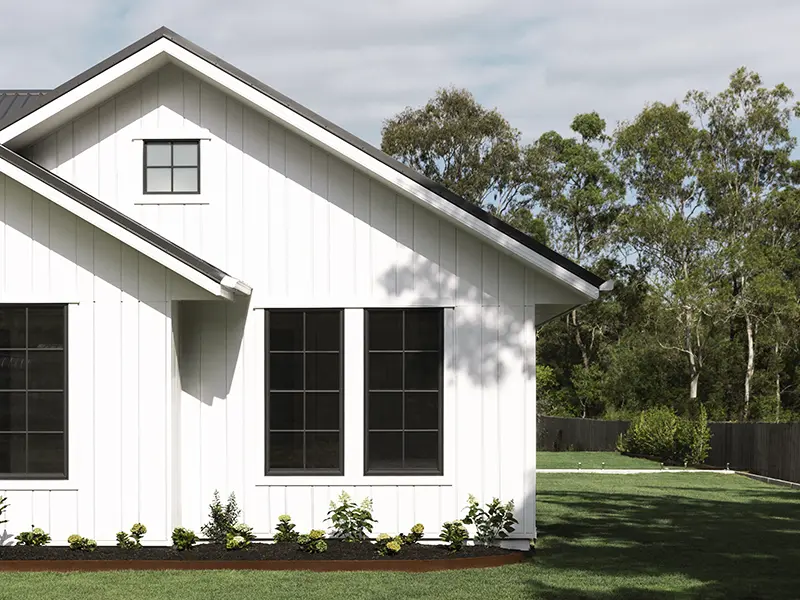
Building delays and how to manage them
There’s nothing quite like seeing your new build or renovation finally starting to take shape as construction gets underway. But what happens when your project is suddenly hit with delays?
Factors currently impacting building projects across Australia include supply chain issues due to global instability, periods of heavy rain and ongoing tradie shortages. Fortunately, there are a few steps you can take to help keep your project on track.
We spoke to Futureflip Director Neil Hipwell and Justine Orton of Orton Building for their expert advice on managing building delays. Topics covered include:
Tips for minimising delays
Communicating with your builder
Managing contracts and financial impacts
Tips to minimise building delays
Working with your builder to select and order materials as early as possible is an excellent way to mitigate potential delays. Order samples of products that interest you to help clarify your vision.
“Make selections early and try to stick with them,” Justine Orton says. “The more organised you are with selections and the fewer changes you make, the easier it is to stay on track.”
Order a Sample
Ready to specify Hardie™ fibre cement products in your next project? Order a sample to help visualise your design decision. Paint samples in any colour to suit the vision you have for your dream home.
Neil Hipwell also recommends making sure your builder has their trades locked in well in advance.
“Ensuring your builder has a strict timeline and schedule organised to work to means you can minimise most delays,” Neil says.
Flexibility is key to keeping your new build or renovation on track
Another way to keep your new build or renovation on track is by being open to making changes along the way, particularly when it comes to product supply issues.
Justine was working on Orton Haus 2.0 in suburban Newcastle, NSW, when tile and curtain orders were impacted by delays. She chose to adjust her product selection rather than see work get held up.
“The curtain material I originally chose was the one item I knew straightaway that I wanted, but when I discovered it wouldn’t arrive in time, I made a substitute. This is something I wouldn’t normally do – however, it worked out beautifully,” says Justine.
It’s also worth remembering that imported goods are much more likely to experience delays and shortages than those made in Australia.
“We didn’t find too many issues with Australian-made products such as James Hardie cladding,” says Neil. “Our windows weren’t too badly impacted either, as they were all Australian made.”
A number of Hardie™ exterior cladding products are manufactured here in Australia, which means they are readily available and less likely to be affected by supply chain issues.
Talk to your builder
Open communications with your builder are always important – discuss any issues or changes immediately, and bear in mind that delays cannot always be avoided. Understanding this will reduce the stress of the building experience. Learn more about developing a harmonious relationship with your builder here.
“Everything has a roll-on effect, so a small change here may have a big impact somewhere else. It’s a really big job to manage trades, suppliers, timelines and client expectations, so open and honest communication between builder and client helps ensure the build can run smoothly and avoid mishaps,” explains Justine.
While delays can be frustrating for everyone involved, Neil says it’s important to not let your emotions take over.
“Normally, it’s out of the builder’s hands when delays occur. If you can keep a proactive, productive approach, you can keep the builder-homeowner relationship strong throughout the entire process,” he says.
What are the legal and financial implications of building delays?
Before you sign a contract with a builder, be sure to check the clauses relating to delays. Extensions can sometimes result in the homeowner having to pay more in material and labour costs, so understanding how delays might impact you (and your hip pocket) from the outset is key.
According to Neil, builders are required to advise the homeowner of delays as soon as possible.
“Typically, homeowners need to be notified of delays by a formal Extension of Time claim in accordance with their building contract. In most cases, the notification needs to be given in writing, typically at the time of the delay,” he says.
Delays often have financial repercussions for the builder too.
“No-one likes delays, especially (not) builders,” says Justine.
“For example, if a builder has a job for $100,000 over three months, which includes a profit margin and overheads of $10,000 a month, and that job extends out to five months, they are losing $20,000 straight off their bottom line.”
The moral of the story? Make product selections early, keep the lines of communication open and be prepared to make changes to material selections as you go. After all, even the best laid plans can go astray!
For more building and renovating resources, download our Home Renovation Guide.
Renovation Guide
With the right help and advice, you can make decisions confidently, ensuring your home will be magnificent in years to come. Our Renovation Guide can help steer you through every stage in the process to help you achieve the renovation you’ve been dreaming of. Get a copy of the James Hardie Renovation Guide now.











